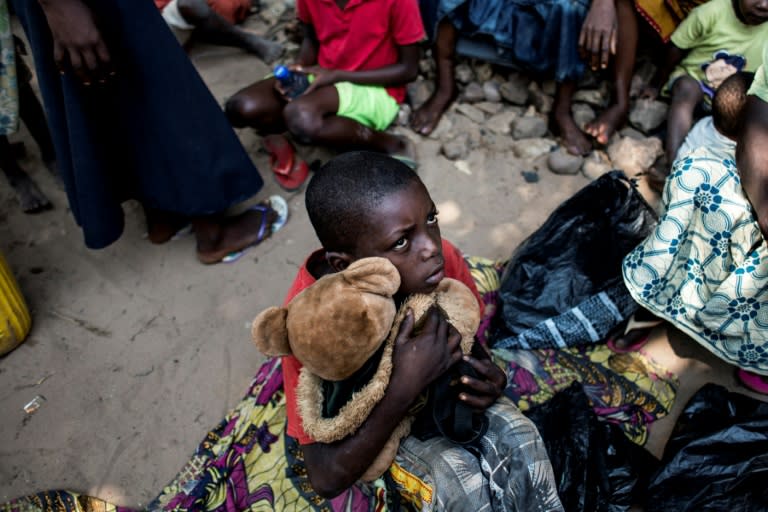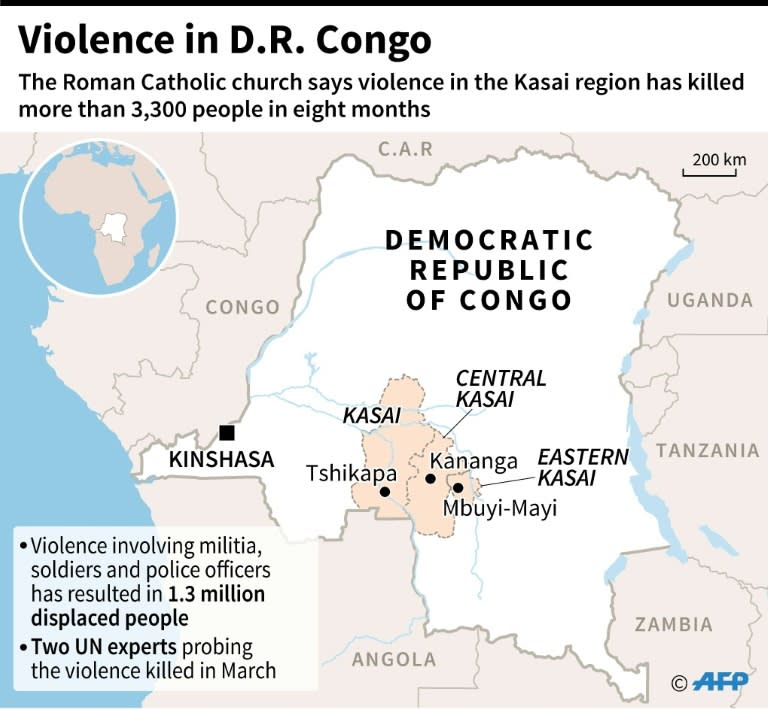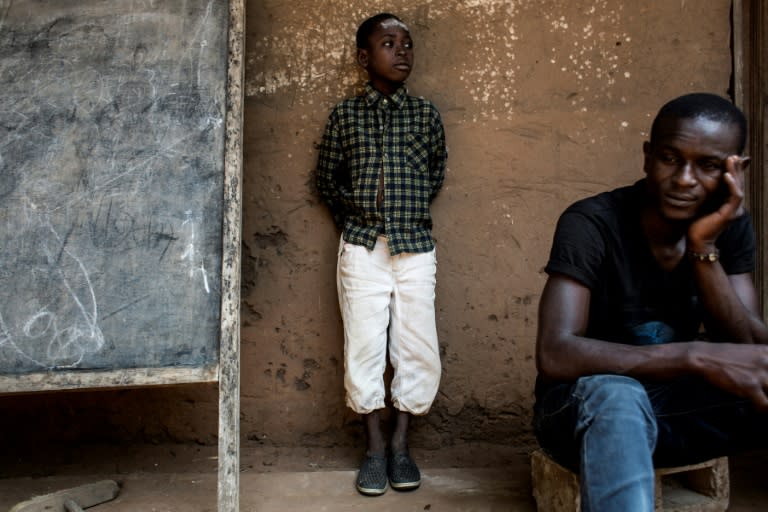UN to send experts to probe DR Congo violence
The UN Human Rights Council on Friday decided to send a group of experts to Democratic Republic of Congo to help investigate an explosion of deadly violence in the Kasai region. A council resolution called on the UN rights office to dispatch a team of international experts to help Kinshasa investigate gross rights violations in the region, including extrajudicial killings, torture, rape and the use of child soldiers. More than 3,300 people have been killed in eight months of spiralling unrest in the central Kasai region, the papal envoy to the country said earlier this week. The violence has so far forced about 1.3 million people to flee their homes, according to UN figures. Adopted by the 47-member council, the resolution, however, fell short of a call from UN rights chief Zeid Ra'ad Al Hussein for a fully-fledged "independent, international investigation" following attacks in the region that he qualified as "horrific". The European Union, supported by the United States and others, had initially presented a draft resolution urging such an international probe. But faced with harsh opposition from Kinshasa, they opted for a compromise, withdrawing their resolution and joining one presented by Tunisia on behalf of a group of African countries. That text calls for the team of international experts, including ones from the region, "to collect and preserve information to determine the facts and circumstances... in cooperation with the (DRC) government". - Crucial compromise - The experts must forward their conclusions to the DRC authorities, the resolution says, stressing that "the perpetrators of deplorable crimes are all accountable to the judicial authorities of the Democratic Republic of the Congo". And it calls on Zeid to present a comprehensive report on the team's findings at the council's session in June next year. DRC Ambassador Zenon Mukongo Ngay told the council his government would "accommodate the investigative team on its soil" but stressed the experts would only provide "technical and logistic support" and that "the Congolese judiciary will maintain the leadership in the investigation". Although the resolution did not go as far as some had hoped, Zeid welcomed the text Friday. "We fully support the establishment of an international investigation by the Human Rights Council as a step forward in identifying the perpetrators of gross violations and bringing them to justice," he said in a statement. The unrest in Kasai began when a local tribal chieftain who was rebelling against the authority of President Joseph Kabila's government, was killed during clashes with the security forces in August 2016. The death of this tribal chief, known as the Kamwina Nsapu, sparked a wave of violence which has not stopped. - Mutilating babies - Earlier this week, Zeid accused Congolese authorities of creating and arming a militia that has carried out "horrific attacks" on civilians, including destroying entire villages, mutilating babies and toddlers and slicing open pregnant women. He also accused the Kamwina Nsapu rebels of committing serious abuses, including targeted killings and using child soldiers as young as seven. His office has documented the existence of at least 42 mass graves in the region. Two UN rights experts, American Michael Sharp and Swedish-Chilean Zaida Catalan, were brutally murdered in March while gathering evidence about the mass graves. On Friday, Tunisian representative Walid Doudech told the council the final text had been subject to "intense negotiations" and thanked the EU for enabling the "crucial compromise". A Western diplomat close to the negotiations said the EU had preferred finding a compromise to pushing through an investigation sure to be boycotted by Kinshasa. The negotiations "were not easy. But it was better to find a balanced solution with the participation of the country," the diplomat told AFP on condition of anonymity. Not everyone was happy with the compromise. "In recognition of the concerning deterioration of the human rights situation in the DRC, the United States hoped that today's resolution would be even stronger," US representative Jason Mack told the council. The United States joined the consensus behind the resolution, he said, but emphasised that Washington expected Kinshasa to "cooperate fully with this team, provide it unhindered access to all areas of the country," and help ensure the safety of investigators and anyone cooperating with the probe. The deputy head of the International Federation for Human Rights (FIDH), Paul Nsapu, also warned in a statement that Friday's resolution "risks not being enough to avert massacres." "Only a truly independent investigation will make it possible to end the cycle of violence in the Kasais," he said.




